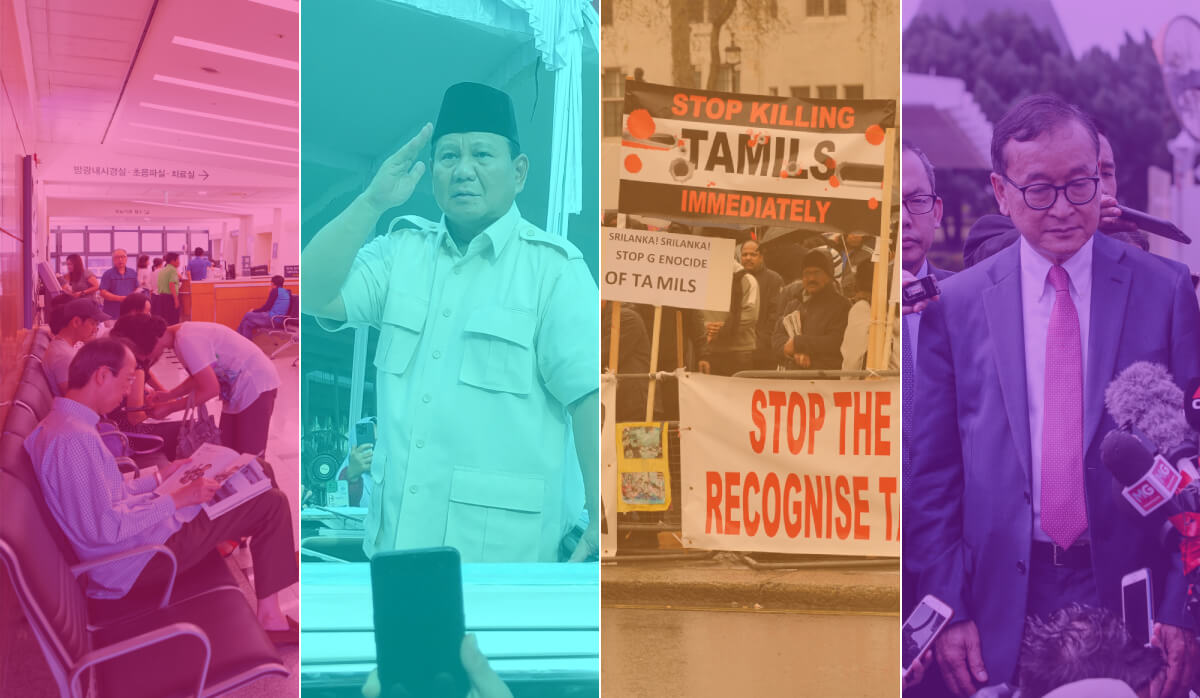NORTHEAST ASIA
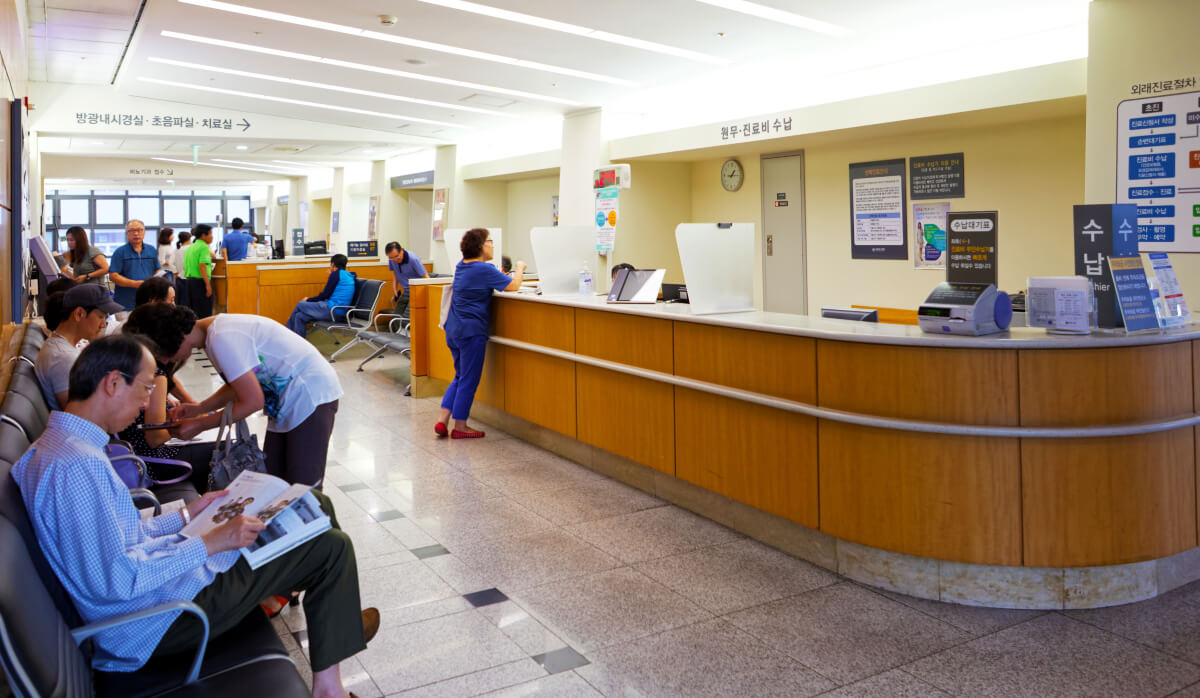
Weighing medical workers’ concerns and patient welfare
South Korea is currently facing a looming health crisis amid the en masse resignations by thousands of junior doctors waging a strike against a government plan to increase medical school admissions by 2025.
But as the government threatens to crack the whip on the striking doctors, the Korean Intern Resident Association called on the government to stop “treating them like criminals” and to instead withdraw the plan and come up with a scientific estimate of the proper numbers of doctors in the country.
“Despite working more than 80 hours a week and receiving compensation at minimum wage level, trainee doctors have been neglected by the government until now,” they said.
Caught in the middle, however, are its patients forced to suffer through delays in their procedures or being turned away by overburdened hospitals affected by the strike, and who are now calling for a swift resolution for the protest.
“If the government truly cares for its people, I hope they take a step back now, and doctors also take a step back, so that patients won’t be hurt,” an unnamed patient told Reuters.
Over half of the 13,000 trainee doctors in South Korea filed their resignations in protest of a government plan to increase the number of medical students from 3,000 to 5,000 to address a looming shortage of doctors amid the country’s fast-aging population. The government anticipates a shortfall of 15,000 doctors by 2035.
South Korea – despite being one of the most developed countries in Asia – has one of the lowest number of doctors (2.6 doctors per 1,000) relative to the size of its population. However, the striking doctors argue that the government needs to address pay and working conditions first before boosting the number of doctors in the country.
While its resident doctors are considered to be among the highest-paid in the world (US$200,000 a year), a report by Reuters estimated that trainees usually work 80 to 100 hours, five days a week – resulting in a heavily overworked workforce.
The current strike also highlighted the ongoing tensions between addressing doctor shortages and ensuring quality medical education and working conditions. In 2020, doctors successfully derailed a similar plan as well as proposals to establish a public medical school; promote telemedicine as the norm; and expand insurance coverage for traditional Korean medicine.
SOUTHEAST ASIA
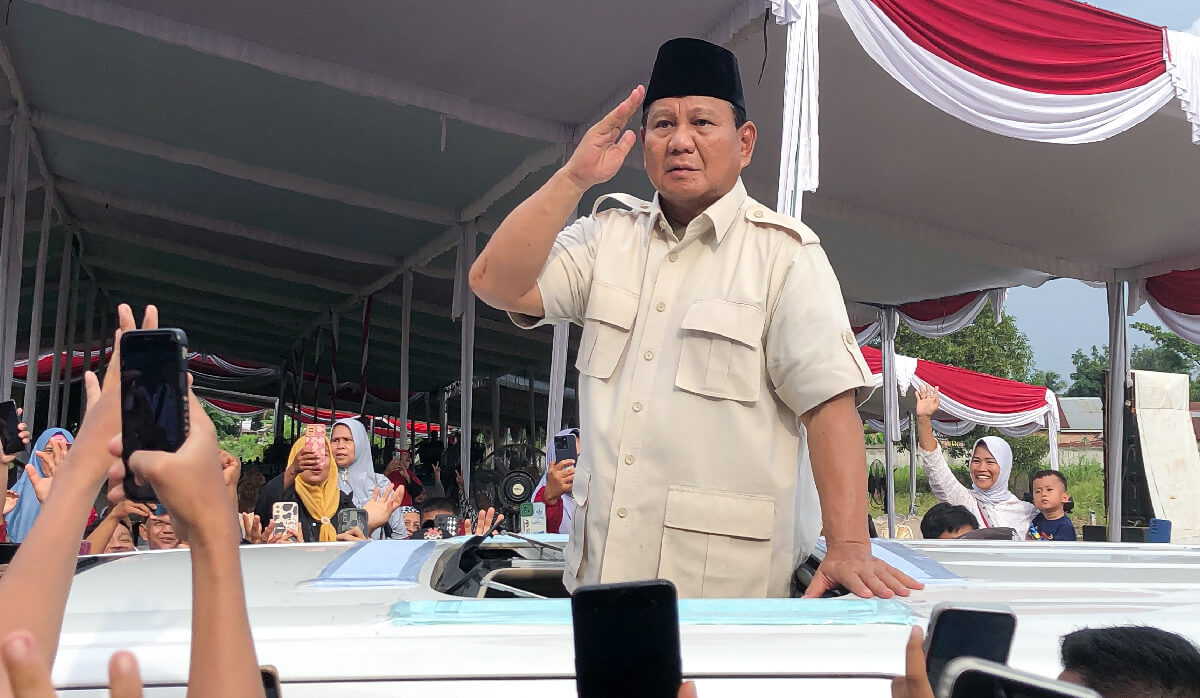
Staying on guard
As dictator Suharto’s former army general Prabowo Subianto sweeps into Indonesia’s presidency, a group of parliamentarians from Southeast Asia urge their counterparts in the region’s largest “democracy” to keep him in check.
“The fact that the likely winner of the presidential election is an accused human rights violator who has never been tried does not bode well for the prospect of human rights protection and rule of law in Indonesia,” said former Timor-Leste lawmaker Abel Da Silva, who is also a member of the ASEAN Parliamentarians for Human Rights (APHR). “We call on our fellow parliamentarians in Indonesia to act as a powerful counterbalance to ensure that the executive’s power does not go unchecked.”
The APHR’s statement follows Indonesia’s largely peaceful but controversial elections last Feb. 14, which saw Prabowo and his running mate, Solo Mayor Gibran Rakabuming Raka, win the country’s top two posts. It was a foregone conclusion for the tandem endorsed by the widely popular President Joko Widodo who is believed to have consolidated his power beyond his term through his son Raka.
In the first place, Raka, 36, was only able to run for the No. 2 post after the Constitutional Court, then led by Widodo’s brother-in-law Anwar Usman, tweaked the constitutional age limit of 40 for presidential and vice presidential candidates.
Widodo himself is accused of flouting election laws by campaigning for the Prabowo-Raka tandem while attending government functions, and of dangling social aid and financial assistance – whose funding this year surpassed the budget set during the height of the COVID-19 pandemic – in exchange for support.
Widodo defended himself saying that a president is allowed to campaign openly for his endorsed candidates. However, Transparency International pointed out that the law allowed that only for an incumbent president campaigning for a second term.
These issues also prompted APHR to call on their Indonesian colleagues to pass legislation that would strengthen the country’s poll bodies, like the General Election Commission and the Election Supervisory Bureau, “to ensure that future elections take place on a level playing field.”
These were similar to the recommendations by the Asian Network for Free Elections (ANFREL), who called for “stronger legislation” including amending the Constitution to insert “clear and enduring standards” on the age requirements for candidates.
SOUTH ASIA
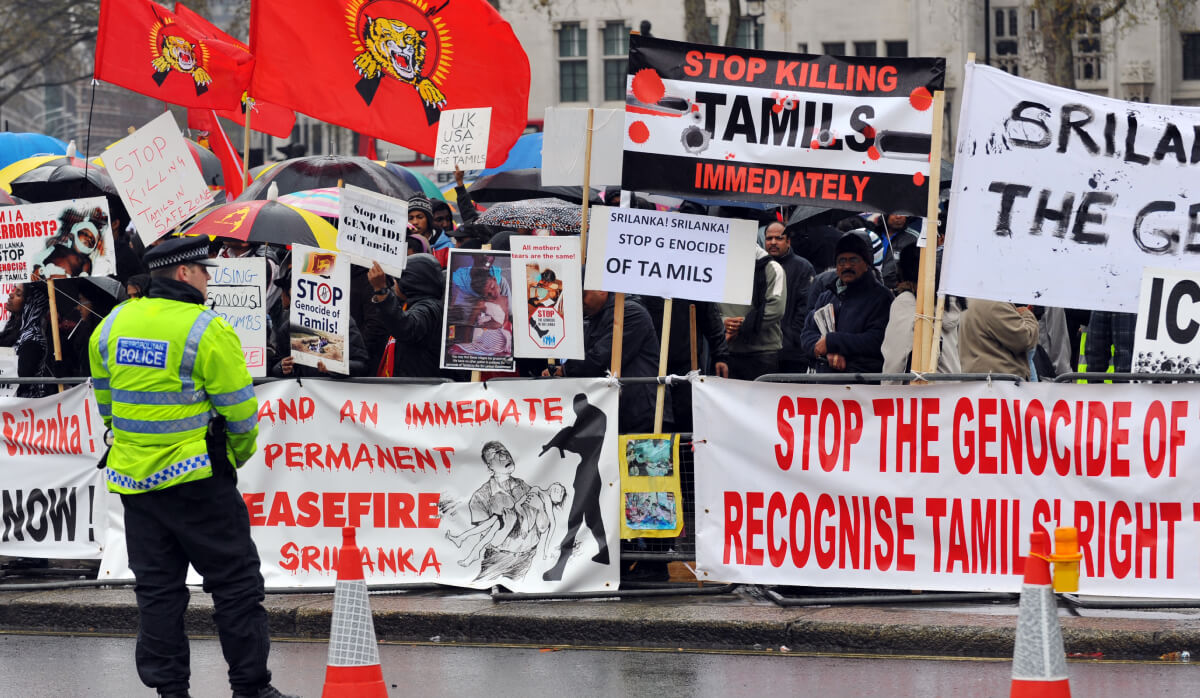
Putting an end to a farce
For almost 68 years, Sri Lanka has fallen into a rabbit hole of establishing new truth commissions supposedly to help achieve justice for victims of human rights violations – including those committed during the 26-year civil war between the government and the separatist Tamils – only for each commission to fail their mandate year after year.
Amid a pending proposal to establish yet another truth commission, the International Truth and Justice Project called on the government to instead release the unpublished reports of all previous inquiries and to actually implement their recommendations.
“There has been a pattern of inquiries being established to investigate only what happened but not to hold anyone criminally responsible, with the result that there is persistent recurrence of mass atrocities by the same individuals,” the ITJP said on Feb. 20. “The first step towards truth would surely be for the Presidential website to acknowledge and endorse the content of past government investigations.”
The ITFJ noted that since 1956, Sri Lanka has established at least 36 truth commissions to seek accountability over a myriad of alleged abuses, from “outbreaks of civil disturbance” (1956); assassinations of public figures (1963, 1995, 2006); and enforced disappearances (1991, 1993, 1994, 1996, 1998, 2006, 2013). More than a third of these commissions never published their reports.
Last month, Sri Lanka’s parliament gazetted a bill establishing a National Unity and Reconciliation Office to look into the various abuses committed by the government, including civilian attacks, executions, disappearances, and torture against the separatist Liberation Tigers of Tamil Eelam from 1980 to 2009.
President Ranil Wickremesinghe had hoped this new commission would convince the U.N. Human Rights Council that there was no need for further scrutiny into possible crimes committed during this period.
However, several civil organizations have opposed such moves as such commissions have repeatedly failed to bring perpetrators to justice and instead promote “reconciliation” with the victims. They also recounted the many times that victims were asked to relive their memories in various forums “with no tangible outcome…they are frustrated, exhausted and traumatized and are no longer willing to trust the state.”
In 2023, Human Rights Watch deputy Asia director Meenakshi Ganguly said that while the country “profoundly needs truth and accountability, [a] credible process requires the support of victims’ families and an end to government abuses against them and their communities.”
GLOBAL / REGIONAL
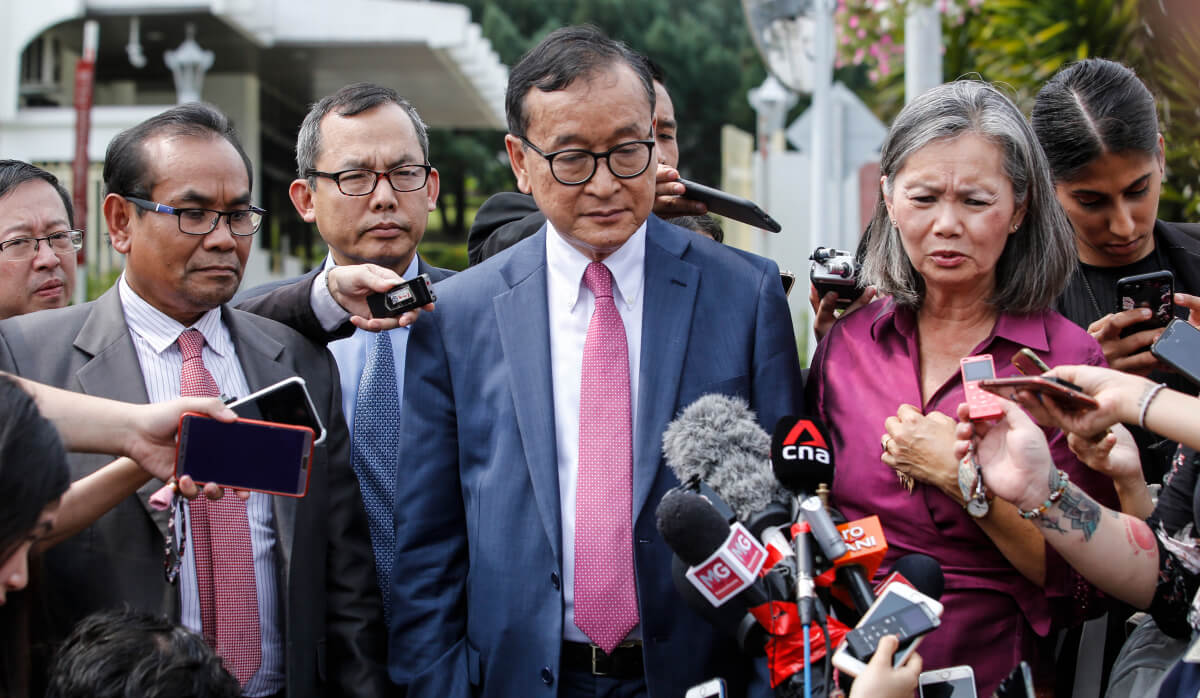
Keeping a close eye on one’s own borders
A new Human Rights Watch (HRW) report has called for a stop on the growing trend of “transnational repression,” where governments are using their legal muscle to muzzle their own citizens who are perceived as critics even beyond their borders.
In its Feb. 22 report, “We Will Find You,” HRW underscored that governments responsible for this practice – a shorthand for various abuses, like killings, unlawful removals, abductions, and surveillance against overseas critics – should know that such activities were “no less problematic abroad than they are at home.”
“Governments, the United Nations, and other international organizations should recognize transnational repression as a specific threat to human rights,” said Bruno Stagno, HRW chief advocacy officer. “They should prioritize bold policy responses that are in line with a human rights framework and uphold the rights of affected individuals and communities.”
The report draws from 75 cases documented by HRW from over 24 governments, including Cambodia, China, and Thailand. Many of the cases involved human rights defenders, journalists, civil society activists or exiled political opponents, who were either threatened, arrested, disappeared, extradited or executed.
In China, Uyghurs who have tried to escape the mass internment camps in Xinjiang province were forcibly returned, in what is seen as a violation of international law against non-refoulement (returning citizens who may face serious risk). A particularly grave case was that of the nearly 100 Uyghurs deported by Thailand in 2015 and who have not been heard from since.
Beyond this, China has long been accused of using other tools like “secret police stations” masquerading as service centers in Australia, Canada, and the United States.
Cambodia and Thailand were particularly flagged for facilitating transnational repression through a 2018 agreement allowing the exchange of “foreign fugitives.” The pact has led to the arrest and extradition of several activists, like Cambodian filmmaker Rath Rott Mony (2018) and Cambodian refugees Veourn Vesna and Voeung Samnang (2021).
A worse fate befell Thai activist Wanchalearn Satsaksit, who fled to Phnom Penh after the 2014 Thai junta coup. He was abducted in Cambodia in 2020 and remains missing to this day.
Beyond condemning these practices, HRW urges targeted vigilance from other governments, particularly regarding extradition requests and Interpol notices, while emphasizing the crucial role of respecting the principle of non-refoulement and offering protection to asylum seekers.










